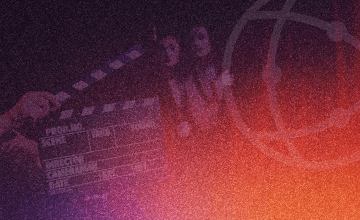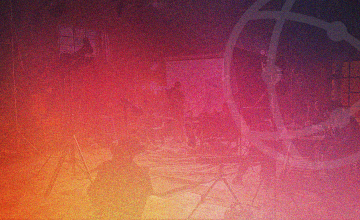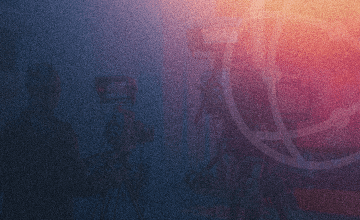Many people, including myself, first discovered Billy Preston through his appearance in “Let It Be,” where his rich electric keyboard melodies formed the heart of tracks such as “Don’t Let Me Down” and “Get Back.” However, it was during “The Concert for Bangla Desh,” George Harrison’s groundbreaking rock concert film from 1972, that I truly recognized Preston’s significance. Throughout most of the benefit concert at Madison Square Garden, he played in the background, skillfully handling the keys. Yet, when Harrison introduced him, he took center stage to perform “That’s the Way God Planned It,” a single he recorded in 1969 for Apple Records. This performance was as striking and powerful as Sly Stone’s rendition of “I Want to Take You Higher” at Woodstock.
The sound of a sacred organ filled the air as the camera focused on a dapper man wearing a large wool cap and sporting a Billy Dee Williams mustache, complemented by a charming gap-toothed smile and a look of reverence. He began to sing, “Why can’t we be humble, like the good lord said…”, sounding reminiscent of a hymn, which it was: a rock ‘n’ roll hymn. The uplifting lyrics resonated deeply, and Preston delivered each phrase as if he were conducting a gospel choir. In 1971, how many popular songs included “God” in their titles? There was “God Only Knows”, and that was about it.
As he reached the chorus, accompanied by gentle descending chords and a bass line that initially followed suit, the song began to elevate, especially at the climax when that bass started to roam freely. You could sense the music beginning to rise. Preston swayed back and forth, tilting his head in ecstasy, the melodies flowing from him like sunlit honey. As the only Black performer on stage, he delivered a message that was, in the rock world, quite radical: that God was present. As the song quickened in the gospel tradition, Preston, inspired by the spirit he was invoking, rose from his keyboard, dancing joyfully, his arms and legs moving in a way that seemed almost weightless. It was a spontaneous and ecstatic dance, as if he couldn’t help himself.
Paris Barclay’s enlightening documentary “Billy Preston: That’s the Way God Planned It” begins with this powerful sequence, providing a cathartic viewing experience. “The Concert for Bangla Desh” featured three standout moments: Bob Dylan’s remarkable set, George Harrison’s cool exit from the stage amid the final crescendo of “Bangla Desh,” and, of course, Billy Preston’s unforgettable performance. Watching it, you couldn’t help but wonder, “Who is this man?” and feel a strong desire to see more.
However, as the documentary reveals, Billy Preston was an enigmatic figure—both vibrant and present, yet also concealed and mysterious. His career mirrored this duality. He was a brilliant session musician who collaborated with legends such as Little Richard, Ray Charles, Aretha Franklin, Sly Stone, The Rolling Stones, and, of course, The Beatles. During the “Get Back” sessions, he was effectively integrated into The Beatles, a rare occurrence. (A scrapbook montage early in the film features a magazine headline declaring, “The Fifth Beatle Is a Brother.”)
As the 1970s progressed, Preston released several memorable pop-funk singles, including “Will It Go Round in Circles” and “Nothing from Nothing,” which he performed on the inaugural episode of “Saturday Night Live,” radiating joy beneath an oversized Afro wig. Yet despite his immense talents as a keyboard virtuoso, powerhouse vocalist, and dynamic dancer, one must ask: why didn’t Billy Preston achieve greater fame? Who was he as an artist? I entered the documentary with a muddled understanding of these questions and exited feeling enlightened.
This exploration included the more troubling aspects of his life. It became evident that, like many around him, Preston was gay, yet he was deeply secretive and conflicted about his sexuality. Was he internally tormented like Little Richard, who Preston toured with in the early ‘60s? Little Richard was the most flamboyant closeted figure in rock history, alternating between his gospel roots and pop sphere, often denouncing his sexuality. Such contradictions illustrate a profound conflict.
Preston exhibited a calmer demeanor, and it’s difficult to ascertain whether his concealed relationships—often described as traveling with his “nephew”—caused him internal strife. Raised in the church by his single mother, he remained a deeply religious person who struggled to openly express his identity. Billy Porter, interviewed in the film, discusses the historical context of this issue, suggesting that “It ain’t just the choir director, honey. There’s a lot of queens in everybody’s church,” which remained a taboo topic.
Preston’s connection to the Black church was unique in the rock realm, characterized by his mastery of the organ—especially the complicated Hammond B3. (He was also exceptionally skilled on the Fender Rhodes.) There’s a compelling narrative to be explored regarding the role of the organ in pop music, and Preston undoubtedly reigned supreme over that instrument. Born in 1946, he began playing in church as a child and quickly became a crossover sensation. A remarkable clip from “The Nat King Cole Show” in 1957 showcases him performing an original piece titled “Billy’s Boogie,” highlighting his lively confidence.
Remarkably, starting in 1963, Preston released a trilogy of albums centered on his organ performances. The third, “Wildest Organ in Town!” (1966), was a partnership with Sly Stone, who arranged the tracks but did not write them. One song, “Advice,” foreshadowed “I Want to Take You Higher.” While James Brown is credited as the inventor of funk, the two legendary successors were Sly Stone and George Clinton. However, the documentary argues that Billy Preston significantly contributed to the evolution of funk. His influence is evident in his 1971 hit “Outa-Space,” which became a prototype for a specific clavinet-driven jam of the ’70s, with the Commodores’ “Machine Gun,” featured in “Boogie Nights,” closely resembling it.
Preston found success and enjoyed its rewards, including a horse ranch in Topanga Canyon. He was revered by figures like Mick Jagger, who showcased Preston on stage—how many people have the opportunity to dance with Jagger?—during the Stones’ 1975 tour. Nonetheless, it’s apparent that had he navigated his career differently, Preston might have emerged as a leading artist, possibly heading a band as influential as the Commodores or Kool and the Gang.
However, his affiliation with the mainstream rock scene likely hindered him, obscuring his identity as a Black artist during a period when such labels were strictly defined. (He faced accusations of being a sellout akin to Whitney Houston.) Additionally, his reluctance to step into the spotlight might have stemmed from concealing his sexuality. Was he merely a sideman or a star? To become a star, one must pursue that ambition vigorously, yet a part of Preston remained more comfortable in the background.
Just when you think you’re watching a light-hearted pop documentary, the darker aspects of Billy Preston’s life emerge. And they are profoundly dark. Early in the film, it’s noted that Billy “lost his innocence” during the 1962 tour with Little Richard, at just 16 years old (it was during this tour that Preston mingled with The Beatles at the Star-Club in Hamburg). However, according to David Ritz, a notable rock biographer and Preston’s friend, Preston never spoke of his childhood experiences. Did something untoward occur between him and Little Richard? The film hints that it may have.
It’s not difficult to connect the dots and speculate that whatever trauma Preston endured as a church-raised teen amidst the wild world of rock ‘n’ roll haunted him, contributing to his struggles with alcohol and cocaine. This chapter of his narrative intrudes abruptly, yet once it does, Preston’s decline becomes painfully apparent.
He became increasingly reliant on cocaine—and later crack. His financial situation deteriorated, resulting in millions owed in taxes. His career hit rock bottom in the late ’70s, as disco transformed Black music beyond the funky grooves he was known for. Lacking a stable domestic life to provide support, he became the bandleader for David Brenner’s short-lived talk show, where an awkward moment occurred when Howard Stern, a guest on the show, approached Preston, detected the scent of liquor on his breath, and confronted him, reminiscing about the man who once played with The Beatles. Preston passed away at 59 in 2006 after battling kidney disease exacerbated by drug use. Nevertheless, he left behind a legion of admirers. His extraordinary talent, the gentle glow of his presence, and his ability to uplift others through his organ riffs affirm that the tragic decline of Billy Preston was not what God intended.
Person: Billy Preston, George Harrison, Bob Dylan, Little Richard, Ray Charles, Aretha Franklin, Sly Stone, the Rolling Stones, the Beatles, Billy Porter, Mick Jagger, David Brenner, Howard Stern, David Ritz
Company Names: Apple Records
Titles: Let It Be, The Concert for Bangla Desh, That’s the Way God Planned It, Saturday Night Live, Wildest Organ in Town!, Outa-Space, Machine Gun, Boogie Nights
Disclaimer: This article has been auto-generated from a syndicated RSS feed and has not been edited by Vitrina staff. It is provided solely for informational purposes on a non-commercial basis.










